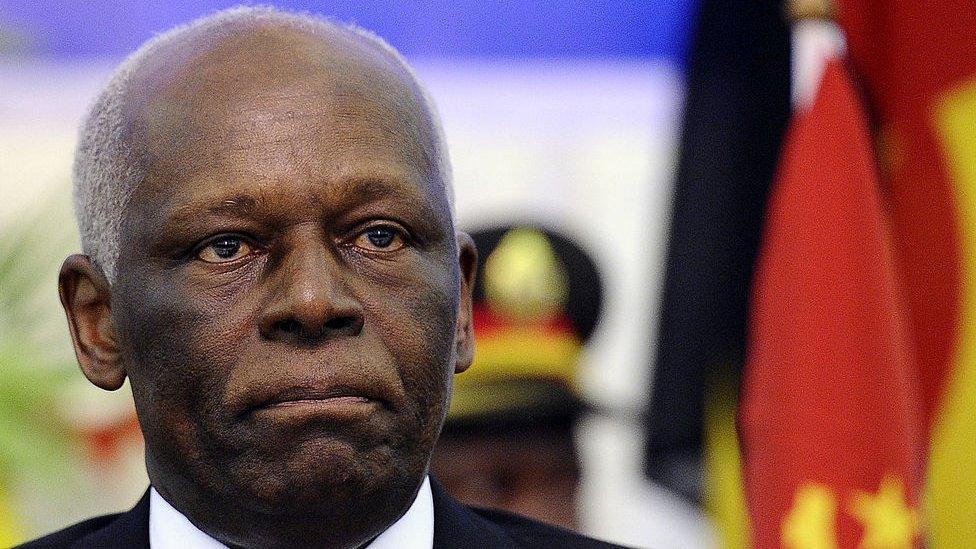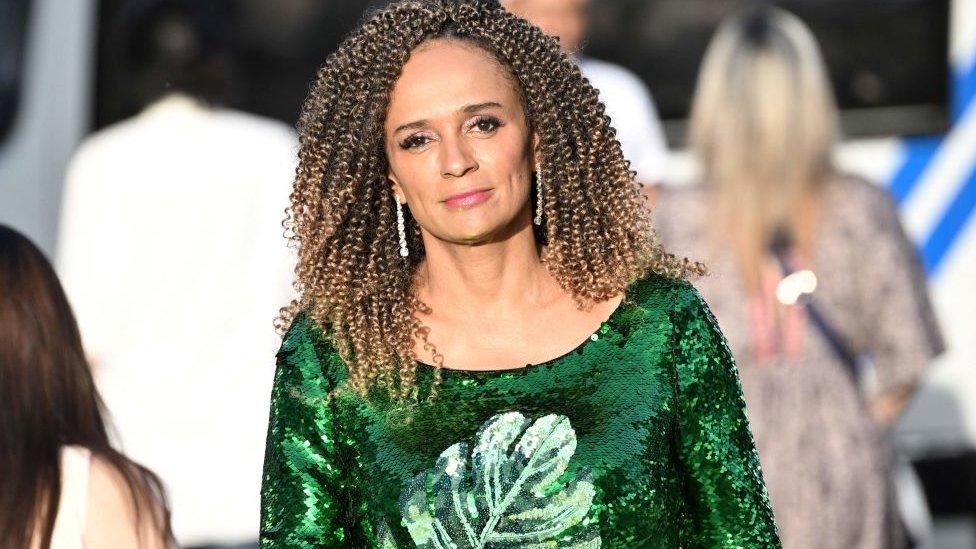José Eduardo dos Santos: Spain approves autopsy for ex-Angola leader
- Published

Jose Eduardo dos Santos died at a Spanish clinic
A Barcelona court has authorised an autopsy on former Angolan President, José Eduardo dos Santos, who died in the city on Friday after his family alleged a conspiracy to kill him.
His daughter, Tchize dos Santos, had requested the autopsy.
Political enemies did not want him to back the opposition in next month's Angolan elections, she said.
Dos Santos, 79, was in Spain for medical treatment and died after a cardiac arrest.
After 38 years in power, he stepped down in 2017 and was succeeded by João Lourenço, who is from the same MPLA party.
He has pursued a vigorous anti-corruption campaign, which has included some of Dos Santos' children.
Lawyers for the Dos Santos family have denounced moves by the Angolan government to return the body there for a state funeral, against the ex-president's expressed wish to be buried privately in Spain.
President Lourenço's desire to hold a state funeral for Dos Santos in Angola has faced fierce opposition, notably from Tchizé dos Santos, the third daughter of Dos Santos and a former MP for the MPLA.
In an Instagram live over the weekend, Tchizé dos Santos was categorical in saying that her father "should only be buried in Angola when João Lourenço is no longer president of the country".
José Eduardo dos Santos is said to have been afraid his death would be politicised because his children would not be able to travel to Angola for his funeral or to visit his grave.
Another of his daughters, Isabel dos Santos, has been charged with mismanagement and embezzling public funds when she headed the state oil firm, Sonangol. She has denied the charges and says she is the target of political persecution.
Isabel and Tchizé dos Santos have been exiled in Europe since their father stepped down.
His son Zenu was jailed for five years for fraud after $500m (£378m) was transferred from the national bank of Angola to an account in the UK.

Isabel dos Santos was said to have become Africa's richest woman and is banned from entering the US over corruption allegations
Relations between the Dos Santos family and the Angolan government have further worsened since he died.
President Lourenço, who was hand-picked by Dos Santos to succeed him, has denied accusations that the government had any link to the former president's death.
He stated that the Angolan government had a duty to organise a state funeral for the country's long-time leader. He also said any Angolan citizen who wanted to travel to Angola for Dos Santos' funeral would be able to do so.
Dos Santos' death divides ruling party
The death of the former president during an election year represents a big challenge for the MPLA and President Lourenço.
Dos Santos and President Lourenço met for the last time over Christmas last year at the late president's official residence in Luanda. But it seems that not even this move by President Lourenço was enough to repair the already damaged relations.
President Lourenço's government is still trying to negotiate with the Dos Santos family about sending their father's body to Luanda.
For President Lourenço, bringing Dos Santos' body back home as soon as possible is needed to reunite the MPLA.
He needs to show a united front to the general public even though there is now a clear division within the party ahead of what could be a difficult election next month.
Dos Santos, who was just 37 when he became head of state, will be remembered for ending a long-running civil war in the early 2000s, with his supporters dubbing him the "architect of peace".
The war lasted for 27 years and ravaged the country. About 500,000 people are believed to have died in the conflict.
But his legacy is marred by corruption and human rights violations during his time in power.